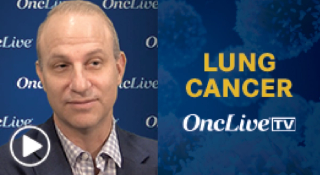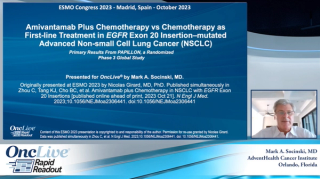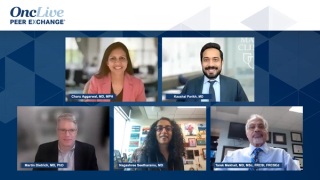
Lung Cancer
Latest News

Latest Videos

CME Content
More News

Benjamin Philip Levy, MD, discusses the relationship between upfront next-generation sequencing and survival outcomes in non–small cell lung cancer.
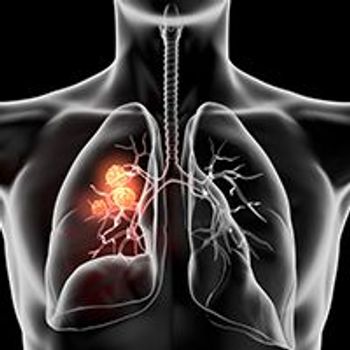
The sequential combination of 6-thio-2’-deoxyguanosine and cemiplimab provided a progression-free survival benefit in the first 2 patients with advanced non–small cell lung cancer enrolled to the part A safety lead-in portion of the phase 2 THIO-101 trial.

MET+ Expression May Be Predictive of Responses With Amivantamab/Lazertinib in Post-Osimertinib NSCLC
MET positivity according to immunohistochemistry showed predictive value for deriving durable responses with amivantamab plus lazertinib in patients with EGFR-mutated non–small cell lung cancer whose disease progressed on or after osimertinib and are chemotherapy naïve.
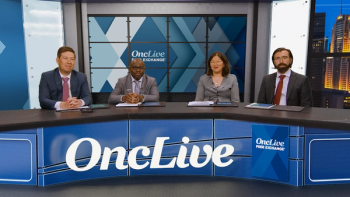
Expert oncologists discuss long-term data updates from the CASPIAN trial and the associated implications on clinical practice.

An overview of first-line treatment options in SCLC with expert insights on important considerations in guiding treatment selection.
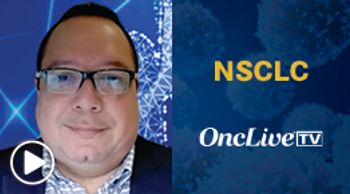
Edgardo Santos, MD, FACP, FCCP, clinical affiliate associate professor, Florida Atlantic University; treasurer, Florida Society of Clinical Oncology, discusses first-line treatment options for patients with ALK-positive non–small cell lung cancer.

BLU-945 alone or in combination with osimertinib demonstrated early signals of clinical activity and was well tolerated in heavily pretreated patients with EGFR-mutant non–small cell lung cancer.

The FDA has granted breakthrough therapy designation to zenocutuzumab for use as a potential therapeutic option in patients with advanced unresectable or metastatic, NRG1 fusion–positive non–small cell lung cancer following progression with prior systemic therapy.
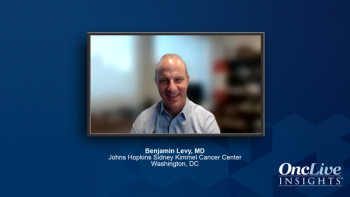
A brief discussion on key barriers to molecular testing in non–small cell lung cancer and how multidisciplinary care plays a role in addressing these hurdles.

George Simon, MD, FACP, FCCP, discusses findings from an FDA pooled analysis of PD-1/PD-L1 inhibitors with or without chemotherapy in patients with non–small cell lung cancer.
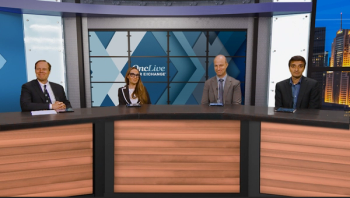
Expert perspectives on selecting between neoadjuvant and perioperative chemoimmunotherapy in patients with resectable early-stage NSCLC.

Sandip Patel, MD, reviews the study design, results and clinical implications of the KEYNOTE-671 and NEOTORCH studies that evaluated perioperative chemoimmunotherapy in the treatment of early-stage NSCLC.

Datopotamab deruxtecan provided a statistically significant improvement in progression-free survival compared with standard-of-care docetaxel in patients with locally advanced or metastatic non–small cell lung cancer who received at least 1 prior line of therapy.

Adagrasib has demonstrated intracranial activity among patients with KRAS G12C–mutated non–small cell lung cancer with untreated central nervous system metastases.
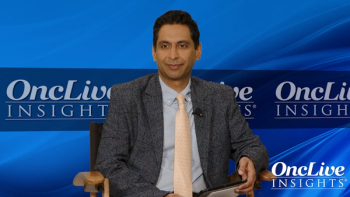
Jorge Nieva, MD, and Ashish Saxena, MD, PhD, discuss the possibility of expanding the use of supportive care regimens to reduce the effects of myelosuppression in patients with SCLC.

A panel of expert oncologists present the case of a 68-year-old man with newly diagnosed, extensive stage small-cell lung cancer and brain metastases, who is treated with carboplatin, etoposide, and durvalumab, and provide their initial impressions.

Faculty discuss the evolving role of molecular markers in small-cell lung cancer and the need for future research to identify improved biomarkers for targeted treatment options.

ONC-392/BNT316 demonstrated early signs of antitumor activity and manageable safety in patients with metastatic, PD-(L)1–resistant non–small cell lung cancer.

Andreas Saltos, MD, discusses final results from a phase 2 trial of first-line pembrolizumab plus vorinostat in patients with metastatic non–small cell lung cancer.
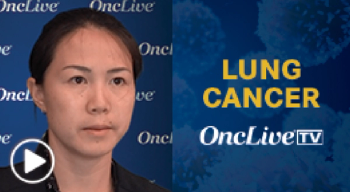
Lova L. Sun, MD, MSCE, discusses the association between duration of immunotherapy and overall survival in patients with advanced non–small-cell lung cancer.

Alexander I. Spira, MD, PhD, FACP, discusses the ongoing phase 3 PACIFIC-8 trial of durvalumab in combination with domvanalimab following concurrent chemoradiotherapy in patients with unresectable stage III non–small cell lung cancer.
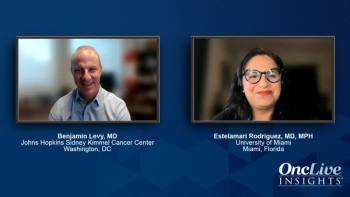
Expert oncologists reflect on the current state of molecular testing in patients with non–small cell lung cancer and how it has impacted treatment pathways.

James Chih-Hsin Yang, MD, discusses the investigation of pembrolizumab plus pemetrexed and platinum-based chemotherapy in patients with TKI-resistant, EGFR-mutant, metastatic nonsquamous non–small cell lung cancer.

Bruna Pellini, MD, discusses the use of circulating tumor DNA monitoring to inform maintenance outcomes in patients with advanced non–small cell lung cancer treated with induction therapy with atezolizumab, carboplatin, and nab-paclitaxel.

David Harpole, MD, discusses study design, results and clinical implications of the AEGEAN study of perioperative immunotherapy (neoadjuvant durvalumab plus chemotherapy followed by adjuvant durvalumab in the treatment of early-stage NSCLC









